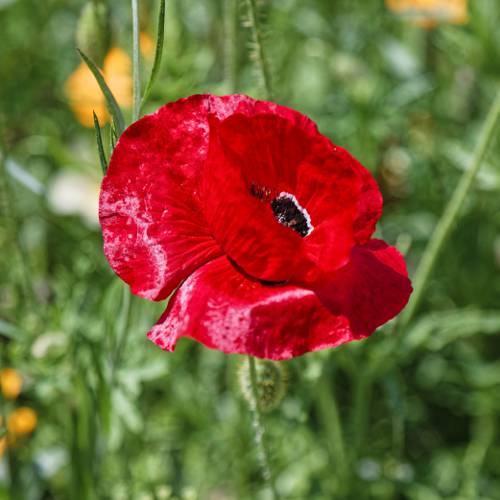
FAQ About Indoor Spiral Garden Design

What is an indoor spiral garden?
An indoor spiral garden is a type of vertical gardening arrangement designed to maximize small spaces by growing plants in a circular, tiered fashion. This design allows for multiple layers of plants, creating a visually appealing and efficient use of space.

How does a spiral garden save space indoors?
A spiral garden saves space indoors by utilizing vertical space instead of horizontal, allowing for a larger variety of plants to be grown in a confined area. The spiral design creates tiers that elevate plants, optimizing light exposure and access to water.

What materials do I need to build an indoor spiral garden?
Building an indoor spiral garden typically requires materials such as sturdy pots or containers, soil, a climbing frame or structure for support, and possibly wire or mesh to shape the spiral. You might also need tools for measuring and cutting if constructing from scratch.

Can any plant be grown in an indoor spiral garden?
While many plants can thrive in an indoor spiral garden, it's essential to choose those suited to your specific light and climate conditions. Herbs, succulents, and small leafy plants that require similar care levels and light exposure are commonly used.

How do I ensure proper drainage in a spiral garden?
Proper drainage is vital in a spiral garden to prevent waterlogging and root rot. Use well-draining soil and ensure your containers have drainage holes. Elevating the base of the garden or using perlite to improve soil drainage can also help.

What are the benefits of having an indoor spiral garden?
Indoor spiral gardens offer several benefits, including maximizing space, improving air quality, and increasing ornamental appeal. They provide a dynamic, living piece of art that can enhance any room's aesthetic while also supporting a green environment.

How do you maintain an indoor spiral garden?
Maintenance involves regular watering, fertilizing, and pruning of plants. Ensuring adequate light and proper drainage is also crucial. Occasionally, you may need to adjust plants as they grow or replace those that might not be thriving.

Is special lighting necessary for an indoor spiral garden?
Special lighting may be necessary depending on the natural light available in the location of your garden. Many indoor plants do well with standard indoor lighting, but supplemental grow lights can be beneficial, especially in dimly lit areas.

How can an indoor spiral garden improve indoor air quality?
Indoor spiral gardens can improve air quality by facilitating plants' natural ability to absorb carbon dioxide and release oxygen. Certain plants also filter out common volatile organic compounds from the air, acting as natural air purifiers.

Can I grow vegetables in an indoor spiral garden?
Yes, small vegetables and herbs suitable for indoor growth, such as lettuce, spinach, and basil, can be successfully grown in a spiral garden. Ensure they receive adequate light and are compatible with the soil and watering requirements.

Are there any disadvantages to an indoor spiral garden?
While there are many benefits, some disadvantages include the potential complexity in setting up and maintaining a healthy microenvironment for the plants. Limited size may restrict choice of larger plants, and frequent adjustments may be necessary as plants grow.

How do I choose the right plants for my indoor spiral garden?
Consider the light, temperature, and humidity levels of your indoor space when choosing plants. Opt for species that thrive in similar conditions and prioritize low-maintenance plants if you prefer less frequent upkeep.

What design tips can enhance the aesthetic of an indoor spiral garden?
To enhance aesthetic appeal, mix plants with varying leaf colors, textures, and growth habits. Arranging them thoughtfully on different tiers can create an eye-catching visual effect. Incorporating decorative stones or miniatures can add character.

How does a spiral garden affect the microclimate indoors?
Spiral gardens can slightly alter the microclimate by increasing moisture levels due to transpiration. This can be beneficial in dry indoor environments. The overall impact depends on the plant variety and density within the spiral structure.

What are some common mistakes to avoid when setting up an indoor spiral garden?
Common mistakes include overwatering, choosing inappropriate plant species for the light available, neglecting drainage, and failing to secure the structure sufficiently. Planning and understanding plant needs are crucial for success.

Is it possible to automate the care of an indoor spiral garden?
Yes, automation can be integrated through smart gardening systems, which manage watering schedules and lighting based on plant needs. These systems can help maintain optimal conditions and reduce manual intervention.

How can I make an indoor spiral garden kid-friendly?
To make a spiral garden kid-friendly, use non-toxic plants and place the garden at an accessible height for interaction. Introduce educational elements such as plant markers and encourage children to help with planting and care.

What type of soil is best for an indoor spiral garden?
A well-draining potting mix is often best for indoor spiral gardens. Adjust the soil composition based on plant needs, incorporating elements like perlite or sand for succulents, or peat for water-loving plants.

Can an indoor spiral garden be moved easily?
Depending on its size and construction materials, a spiral garden may be moved, but care should be taken to avoid disturbing the plant roots or soil structure. Ensure it is stable and secure before any relocation.
